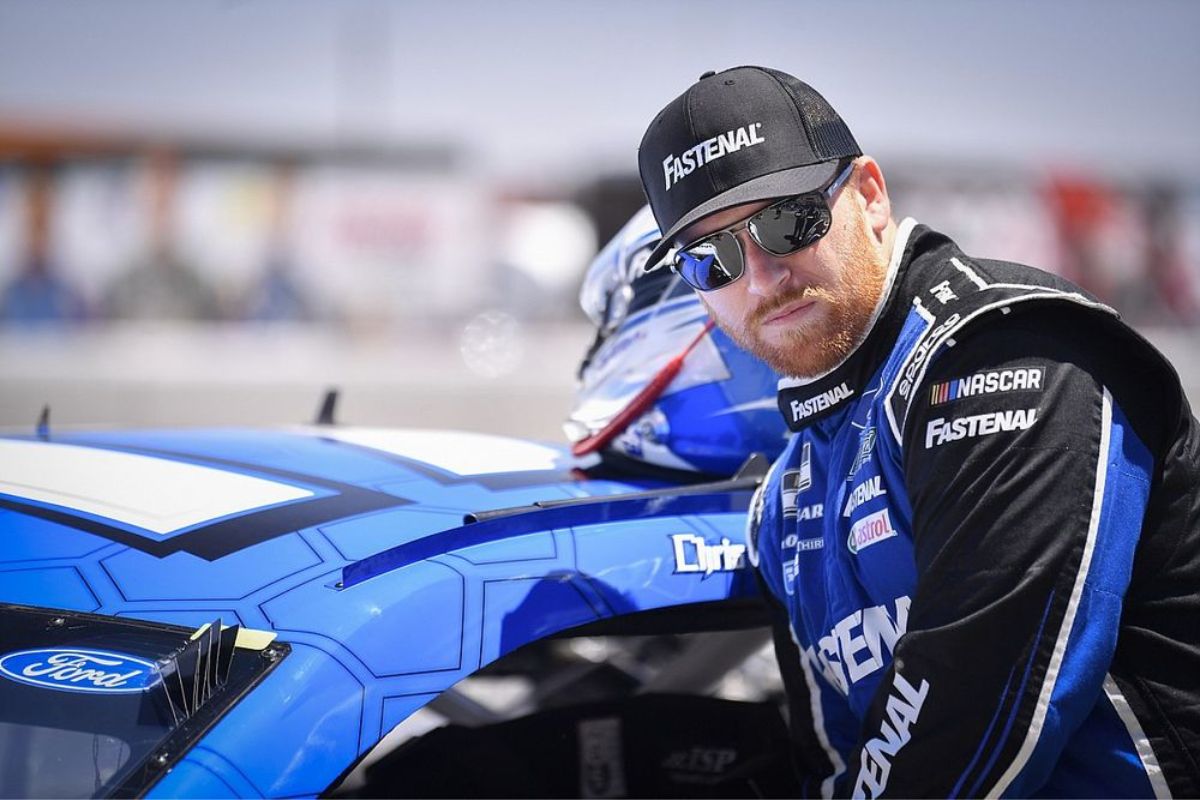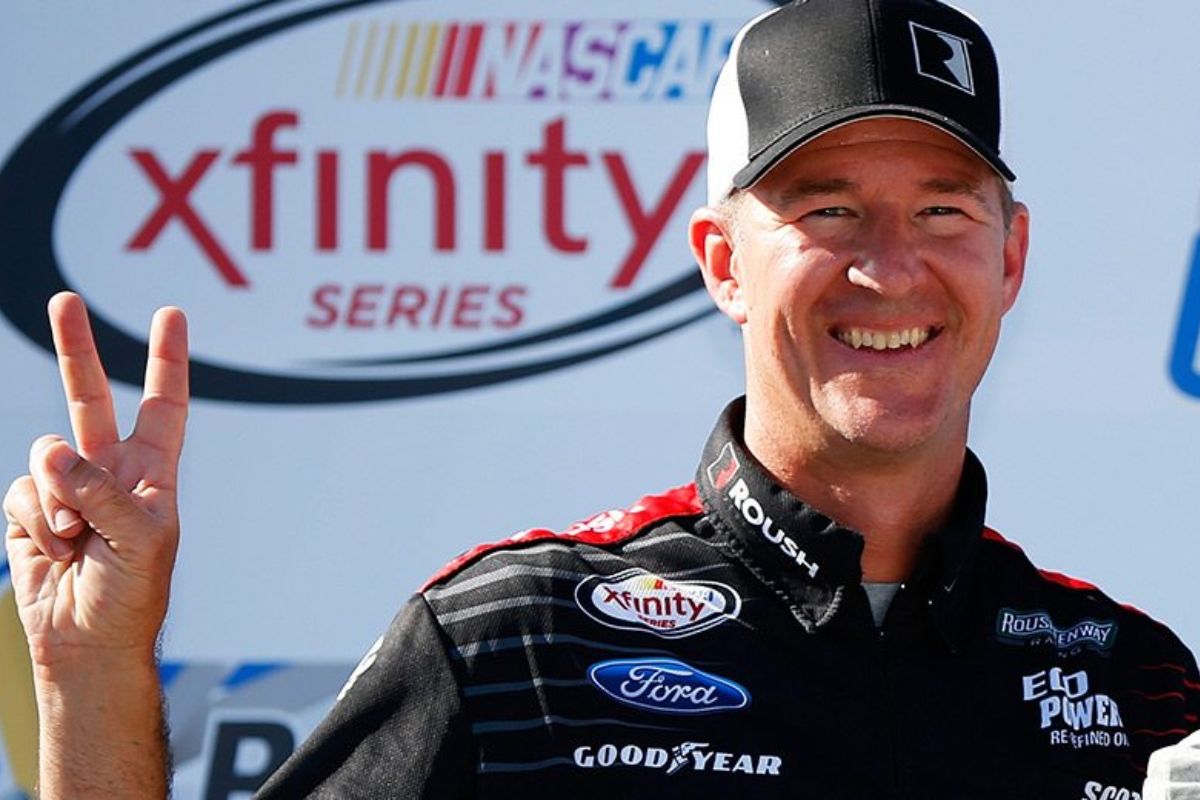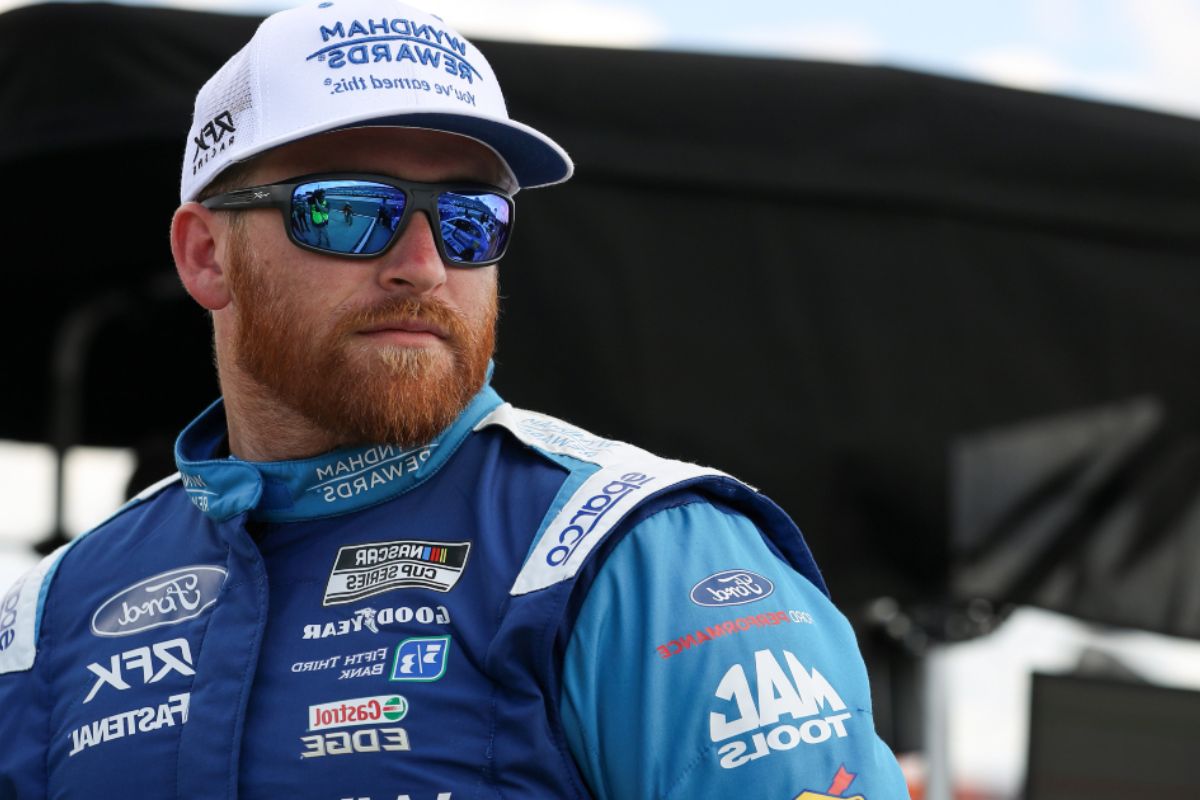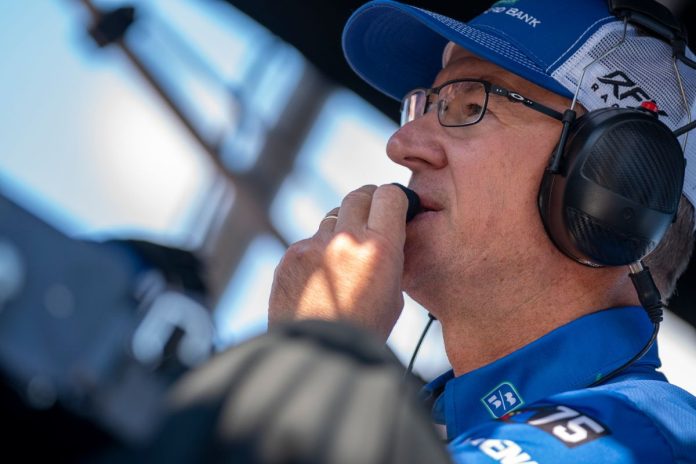Scott Graves Supports NASCAR’s Call: In NASCAR, the recent decision at Kansas Speedway involving Chris Buescher’s finish has stirred notable discussions within the motorsports community. Scott Graves, Buescher’s crew chief, has publicly endorsed NASCAR’s ruling, a stance that not only emphasizes his commitment to the sport’s regulatory framework but also highlights a broader issue of rule enforcement and fairness in competitive racing. This incident, marked by its immediacy and the clarity of Graves’ subsequent acceptance, sets an example for how disputes could be handled in future races.
Key Takeaways
- Scott Graves accepted NASCAR’s decision after visual data and high-speed cameras showed Buescher narrowly lost by 0.001 seconds.
- Graves sought clarity from NASCAR officials, reflecting his commitment to understanding the precise race outcome.
- Despite initial confusion, RFK Racing conceded to the official results, showcasing sportsmanship and trust in the adjudication process.
- The decision emphasized the importance of advanced technology in race judgement, which Graves acknowledged.
- Graves’ acceptance highlights his pragmatic approach to the sport and respect for definitive evidence in racing decisions.
Heartbreak for Chris Buescher at Kansas Speedway
At Kansas Speedway, Chris Buescher experienced an emotional mix of success and despair, representing the volatile emotions inherent in competitive racing. The dual emotional impacts of winning and losing were clearly displayed, highlighting the complex emotions that drivers endure. For Buescher, the shift from potential victory to a narrow defeat was not just a matter of points and standings; it was a profound emotional experience that tested his resilience and that of his crew chief, Scott Graves.
The interplay between driver and crew chief in such high-stress moments is critical. Graves, in his capacity, would have had to manage not only the strategic decisions that come with pit stops and car adjustments but also the emotional atmosphere of his driver. Racing, in its essence, is not solely about the technical abilities of the vehicle or the physical endurance of the driver, but equally about the psychological challenges that play out internally and between competitors.
In this instance, the heartbreak of losing by a mere fraction of a moment highlights the harsh reality of racing—where milliseconds define the boundary between disappointment and despair. Such outcomes can deeply impact a racer’s psychological state, influencing subsequent performances. For Buescher and Graves, the challenge then lies not only in mechanical and physical preparation for future races but in fortifying their mental resilience.

The Closest Finish in NASCAR History
The electrifying finish at Kansas Speedway, where Chris Buescher and Kyle Larson were separated by a mere 0.001 seconds, stands as the closest finish in NASCAR history, reflecting both the precision of the sport and the razor-thin margins that define victory and defeat. Such a historic moment highlights the extreme competitiveness and the technical advancements in NASCAR that allow for such precise measurements.
This monumental finish not only captivated fans but also showcased the sophistication of timing technology in motor racing. Modern sensors and high-speed cameras are integral to these determinations, ensuring that each race’s result is beyond reproach. The finish was a display of the drivers’ skill and the teams’ strategies, both of which had to be executed flawlessly to result in such a narrow margin.
Confusion and Acceptance
Initial perplexity permeated the atmosphere at Kansas Speedway as uncertainty loomed over the victor of the AdventHealth 400, given the unbelievable closeness of the finish. The visual data seemed to favor car #17, driven by Chris Buescher, as the initial to cross the finish line.
RFK Racing’s pit crew and supporters erupted in celebration, convinced of Buescher’s victory. The immediate response was a natural outburst of joy, reflecting the team’s belief in their success based on the real-time visual cues.
As the announcer declared Larson the winner, a wave of shock replaced the initial joy. Faces that were alight with triumph turned to expressions of confusion, mirroring the uncertainty that shrouded the track.
Amidst the mixed reactions, Scott Graves, crew chief for car #17, sought clarity by meeting directly with NASCAR officials. This move was indicative of a professional approach to resolve the ambiguity, prioritizing factual verification over emotional response.
After the race, Bob Pockrass talked to Gravis, who said the team accepted the final decision to prevent more confusion. Later, RFK Racing posted a picture of the start-finish line, showing it was painted unevenly.
“I mean, they showed us the picture they create using the lasers. We were just wondering if they were using the painted line or not. They don’t. It’s actually, they have a photosystem that is a lot more accurate than that.” Graves

Accepting the Final Decision
In the aftermath of the contentious race finish, Scott Graves and the RFK Racing team ultimately conceded to NASCAR’s decision, emphasizing the importance of clarity and precision in the determination of race results. Their acceptance was rooted not only in the immediate need to resolve confusion but also in the broader aim of preserving the integrity of the sport. The team’s scrutiny of the final photo finish, supported by advanced laser technology rather than the traditional painted line, highlights a critical evolution in race adjudication.
Chris Buescher crew chief Scott Graves after meeting with NASCAR. He said he accepts NASCAR's decision. pic.twitter.com/KPqyXwAy6b
— Bob Pockrass (@bobpockrass) May 6, 2024
“They showed us the picture of it and it is what it is. It doesn’t make it any easier to swallow, but as much as all these races are, you’ve got to at least question it and make sure your understanding of everything going on there and be able to accept that decision. So we did.” Graves
Graves’ interaction with officials and subsequent public statements reflect a deep-seated respect for the technological tools at NASCAR’s disposal. By acknowledging the superiority of the photo system over the human eye and painted markers, Graves highlights the necessity of modernizing perceptions of race finishes. This shift is crucial in a sport where milliseconds can determine the outcome.
Buescher’s Reaction to the Loss
While Scott Graves and the RFK Racing team showed a composed acceptance of the NASCAR ruling, Chris Buescher, the driver at the heart of the controversy, expressed a palpable sense of loss in his reaction to the race’s end. The defeat at Kansas, a track where victory seemed within his grasp, understandably weighed heavily on him, revealing the emotional rollercoaster that drivers often endure.
Chris Buescher’s post-race interview was marked not only by disappointment but also a reflective acknowledgment of the race’s outcome.
Buescher described the jarring experience of celebrating on the backstretch, feeling the elation of a win, only to be met with the stark reality of a reversal at the front straightaway. This shift from victory to denial encapsulates the highs and lows inherent in competitive racing.
He poignantly noted, ‘Second hurts a whole lot worse than third,’ illustrating the unique sting of coming so close to the top spot, only to fall short. This statement emphasizes the psychological impact of proximity to victory on an athlete’s morale.
Additionally, the 31-year-old driver expressed satisfaction with their overall performance, highlighting their speed and the impressive recovery by him and his team after Stage Two. However, he also lamented that despite their efforts, they were the ones without a trophy in hand.
“It sucks to celebrate on the backstretch and then pull up to the front straightaway and be told no. I don’t know how everything transpired, honestly. Not right now. It sucks in a lot of ways. Second hurts a whole lot worse than third.” Buescher

News in Brief: Scott Graves Supports NASCAR’s Call
Scott Graves’ endorsement of NASCAR’s resolution at Kansas Speedway exemplifies a deep commitment to sportsmanship and procedural integrity within motorsports. By prioritizing transparency and swiftly acknowledging the official ruling despite initial uncertainties, Graves reinforces the importance of adhering to adjudicative processes for the legitimacy of competitive outcomes.
This episode highlights the vital balance between emotional investment and principled acceptance, necessary for upholding the credibility and fairness of NASCAR events.
ALSO READ: NASCAR Fans Predict Chris Buescher’s Heel Turn After Hamlin’s Drama


